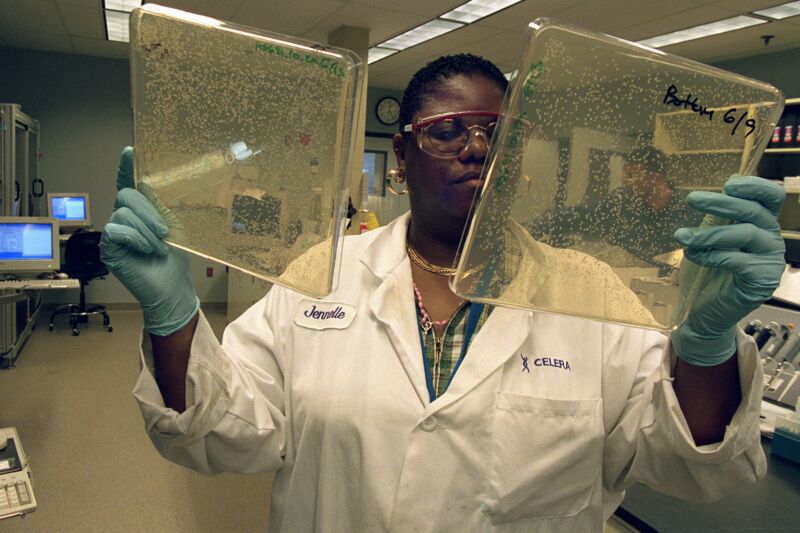Researchers rewire the genetics of E. coli, make it virus-proof

Enlarge / On the outside, these heavily engineered bacteria look no different from their normal peers. (credit: Raphael Gaillarde / Getty Images)
Many of the fundamental features of life don't necessarily have to be the way they are. Chance plays a major role in evolution, and there are alternate paths that were never explored, simply because whatever evolved first happened to be good enough. One instance is the genetic code, which converts the information carried by our DNA into the specific sequence of amino acids that form proteins. There are a vast number of potential amino acids, many of which are can form spontaneously. But most life uses a genetic code that relies on just 20 of them.
Over the past couple of decades, researchers have shown that it doesn't have to be that way. If you supply bacteria with the right enzyme and an alternative amino acid, they can use it. But bacteria won't use it very efficiently, given that all of the slots of the existing genetic code are already in use.
Now, researchers have managed to take bacteria and edit their genetic code to free up a few new slots. They then filled those slots with unnatural amino acids, allowing the bacteria to produce proteins that would never be found in nature. One side effect of the reprogramming? No viruses could replicate in the modified bacteria.
Read 19 remaining paragraphs | Comments
source https://arstechnica.com/?p=1769691